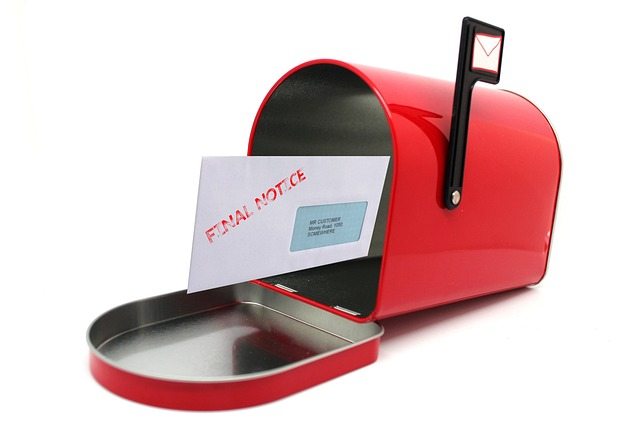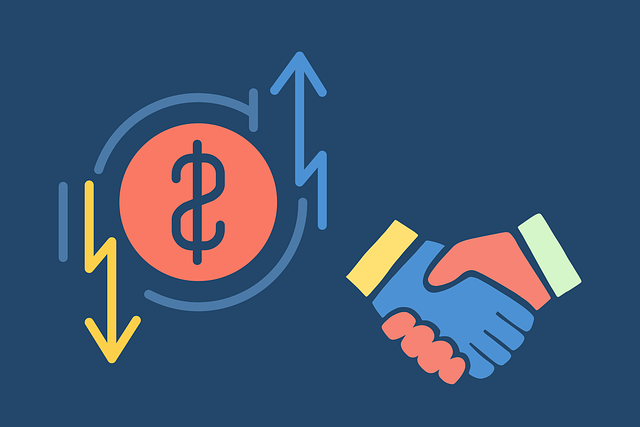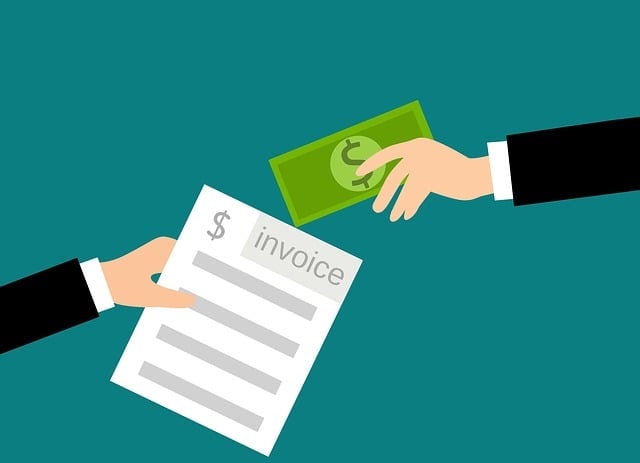What does it mean to Send Someone to Collections?
Sending someone to collections occurs when a creditor has exhausted all efforts to recover a debt, often involving a collection agency. This process typically begins with a demand letter requesting payment.
Debt collection is vital for creditors to recoup unpaid debts like credit cards, medical bills, student loans, and credit card debt. However, if unresolved, it can harm the debtor’s credit score and lead to legal action. Debtors have rights under the Fair Debt Collection Practices Act (FDCPA) to protect them from aggressive collection tactics.
Collections in Small Business
Nonfinancial institutions that sell on credit typically invoice customers for goods or services. When those customers fail to pay on time, it can cause significant revenue and cash flow issues.
Per Business News Daily, nonfinancial institution businesses are creditors to an estimated $17.7 billion in debt nationwide. As a small business owner, you must monitor your accounts receivable aging report and days sales outstanding (DSO) to identify late-paying customers and when to send them to debt collectors.
What are the rules for Sending Someone to Collections?
When sending someone to collections, specific rules and guidelines must be followed to ensure compliance with the law. Seeking legal counsel is crucial to navigate the complexities of debt collection laws and avoid legal liabilities. Here are some essential rules to keep in mind:
- Verify the debt: Before sending someone to collections, it is crucial to verify that the debt is valid and that all necessary steps have been taken to collect it.
- Provide written notice: The Fair Debt Collection Practices Act (FDCPA) requires you to provide written notice to the debtor before sending them to collections. This notice must include information about the debt, the amount owed, and how they can dispute it.
- Follow state laws: Each state has its own laws and regulations regarding debt collection practices. It is essential to familiarize yourself with the laws in your state to ensure compliance.
- Respect consumer rights: Debtors have rights under the FDCPA, such as the right to dispute the debt and the right to request validation of the debt. It is essential to respect debt collection rights throughout the collections process.
- Use ethical practices: When sending someone to collections, it is essential to use ethical and respectful practices. Harassment, threats, or intimidation are not allowed under the FDCPA.
By following these rules and guidelines, you can legally and ethically send someone to collections while maximizing your chances of successfully recovering the debt.
Understanding the Fair Debt Collection Practices Act (FDCPA) – A Closer Look
The FDCPA prohibits debt collection companies from using abusive, unfair, or deceptive practices to collect debts from you. Under the FDCPA, debt collectors cannot contact a debtor after 9 p.m. or before 8 a.m. in the debtor’s time zone. Debt collectors must send a validation notice to the debtor within five days after first contacting them.
Debt collectors are not allowed to reveal to family or friends that a debtor owes money. When a debt collector is trying to collect more than one debt, they must apply any payment to the debt that the debtor chooses. Debtors have the right to request that a debt collector not contact them at their workplace.
The FDCPA prohibits debt collectors from making false claims or sending misleading documents. If a debtor hires a lawyer, the debt collector must communicate with the lawyer instead of directly with the debtor. The statute of limitations defines how long debt collectors have to sue a debtor for unpaid debts. After the statute of limitations runs out, debt is considered time-barred and collectors cannot sue. Consumers can report debt collectors to their state attorney general if they believe their rights have been violated.
When should a Small Business Send Someone to a Collections Agency?
Determining the right time to send an account to collections is crucial. Small businesses should consider sending individuals to collections after waiting a minimum of 90-120 days following the due date. This timeframe allows for sufficient opportunity for late payments to be settled. Waiting 90 days before sending an account to collections is common practice among businesses.
Before resorting to collections, exhaust other payment recovery options such as reminders, payment plans, or negotiations. It’s often beneficial to send reminders and resubmit invoices before escalating to collections. These steps can often lead to successful resolution without involving collections agencies. Ensure you have made adequate attempts to recover the money owed, as this can save on the costs and efforts associated with professional collection services.
It is crucial for small businesses to evaluate the debt amount before deciding on collections. Smaller debts may not justify the cost and effort involved in pursuing collections.
What are the pros & cons of Sending a Customer to Collections?
Sending a customer to collections can have its benefits. One advantage is the potential to recover unpaid debt, helping small businesses maintain financial stability. This process can also act as a deterrent for future late payments, improving cash flow.
However, sending a customer to collections can negatively impact relationships. Clients may feel alienated or disgruntled, leading to poor reviews and damaging the business’s reputation. This could result in losing loyal customers and decreased success rates in retaining clients.
Moreover, there are legal implications and costs associated with collections. Small businesses need to be aware of debt collection regulations to avoid legal troubles. The expenses involved in hiring debt collection agencies or pursuing legal actions can add financial strain on the business.
Sending Someone to Collections Pros & Cons
Pros:
- Recover unpaid debts.
- Deterrence for future late payments.
- Improved cash flow.
Cons:
- Negative impact on customer relationships.
- Poor reviews and damaged reputation.
- Legal implications and associated costs.
What are the steps for a Small Business to Send Someone to Collections?
Here are steps to follow when dealing with missed payments from customers. Small businesses should make every legal attempt to collect the debt before hiring a collection agency. Here are crucial steps to follow in the debt collection process.
Step 1: Contact the Debtor
Before sending someone to collections, it is crucial to contact the debtor directly. Send reminders and emails or make phone calls to remind them of their outstanding debt. Contacting the debtor directly can clarify misunderstandings about late payments. Offering a payment plan can demonstrate flexibility and potentially secure future business. Resending invoices gives customers another chance to pay before escalating to collections.
Step 2: Send a Demand Letter
Send a formal demand letter if the debtor does not respond to your initial attempts to collect the debt. This letter should outline the amount owed, the due date, and the consequences of non-payment.
Step 3: Consider Negotiation
If the debtor is willing to negotiate, consider setting up a payment plan or settling for a lower amount. Documenting any agreements made during this process is essential.
Step 4: Hire a Collection Agency
If all collection efforts have been unsuccessful, consider hiring a reputable agency to ensure lawful practices and protect your business. Make sure to research and choose an agency that complies with all regulations. Look for an agency that has certifications from the Commercial Law League of America or is a member of a reputable association.
Step 5: Provide Documentation
When handing over the debt to the collection agency, provide them with all relevant documentation, including unpaid invoices, contracts, and communication with the debtor.
Step 6: Monitor Progress
Stay in touch with the collections agency to monitor their debt collection progress. Ensure they follow legal guidelines and keep you informed of any developments.
Step 7: Consider Legal Action
If the collection agency cannot recover the debt, you may need to consider taking legal action against the debtor. Taking legal action should be considered only as a last resort if all other efforts failed. Consult a lawyer to explore your options and determine the best course of action.
Frequently Asked Questions
Here are the most common questions about how to send someone to collections.
How can my business find a Debt Collection Agency?
Small businesses have several options when finding a good collection agency. When selecting a collection agency, it’s essential to consider their reputation and the fees they charge.
Here are some important considerations when looking for an agency.
Research Agencies
Begin by researching collection agencies that specialize in dealing with the type of debts your business faces. Look for agencies with experience in handling cases similar to yours. Reputable collection agencies operate based on their reputation and client referrals.
Look into the Better Business Bureau (BBB) to check the reputation of these agencies. Ensure they have high ratings and positive feedback from other businesses they have assisted.
Check Fees and Services
Using a collection agency involves paying fees that can range from 18% to 50% of the amount collected. When contacting potential agencies, inquire about their fees and the services they provide. Understand their fee structure, whether a percentage of the collected amount or a flat rate.
Ask about their specific services, such as skip tracing, credit reporting, or legal assistance if needed. Before deciding, ensure you are clear on what is included in their service package. The average fee charged by collection agencies may vary depending on the age of the debt and industry. Businesses should consider if the cost of hiring a collection agency is greater than the amount of debt owed.
Does it cost money to Send Someone to Collections?
Sending someone to collections incurs fees that vary by agency, ranging from a percentage of the debt to a flat rate. Businesses must factor in these costs when deciding on debt collection.
While there is an initial investment, hiring a collection agency can yield a significant return on investment by recovering debts. Different collection methods vary in cost and effectiveness, so weighing the expenses against potential benefits is crucial.
Is it ethical for a Small Business to Send Customers to Collections?
Sending customers to collections is a common practice in businesses when attempts to collect debts have failed. Businesses must follow legal guidelines and treat customers with respect throughout the collection process.
What mistakes should Small Businesses Avoid when Sending Customers to Collections?
While sending someone to collections is sometimes necessary, small businesses should take steps to avoid costly mistakes. Here are the don’ts of sending a customer to collections.
- Don’t ignore communication with the customer before sending to collections.
- Don’t skip documenting all interactions and attempts to collect payment.
- Don’t use aggressive or threatening language when communicating with the customer.
- Don’t violate any debt collection laws or regulations.
- Don’t threaten legal action beyond lawsuits.
- Don’t rush to send a customer to collections without exploring other payment options.
Do Collection Agencies report debt to the credit bureaus?
Collection agencies have the authority to report the delinquent account to the credit bureaus, impacting credit scores. This reporting can lead to difficulties in obtaining loans or credit cards in the future. A collections account stays on the debtor’s credit report for years, affecting overall financial health.
What are some strategies to avoid Sending Unpaid Customers to Collections?
Ideally, small businesses would be able to collect payments from customers without involving a collection agency. While sending unpaid customers to collections is sometimes unavoidable, here are some strategies to improve billing and increase payments before getting a collection agency involved.
Setting Clear Payment Terms
Small businesses can improve their billing practices by setting clear payment terms from the beginning. This includes clearly outlining payment due dates, accepted payment methods, and any late fees or penalties for overdue payments. Providing this information upfront can help prevent misunderstandings or disputes later on.
Timely and Consistent Invoicing
Another strategy is to send out invoices promptly and consistently. By sending out invoices promptly, businesses can ensure that customers are aware of their outstanding balances and can make payments accordingly. Additionally, promptly following up on overdue payments with debt collection letters can help prevent accounts from falling further behind.
Provide Multiple Payment Options
Offering payment options can also help improve billing practices. Providing customers with different ways to pay, such as online payments, credit card payments, or payment plans, can make settling their accounts easier. This flexibility can help prevent customers from falling behind on payments and ultimately being sent to collections.
Clear Communication
Lastly, establishing a clear communication channel for billing inquiries or issues can help address concerns before they escalate. By proactively addressing customer questions or concerns about their bills, businesses can maintain a positive relationship with their customers and reduce the likelihood of accounts being sent to collections.
How to Send Someone to Collections – Final Thoughts
Sending customers to collections is an unfortunate but sometimes necessary action. Knowing the rules, pros, cons, and steps involved arms you with the knowledge to make informed decisions for your business.
Finding a reputable collection agency can streamline the process and protect your interests. You can maintain positive relationships and safeguard your financial stability by taking proactive steps and implementing strategies to avoid sending customers to collections.
Contact us if you have more questions about collection agencies or to apply for a small business loan. Our alternative business financing experts can help you find the best funding options for your business.
















